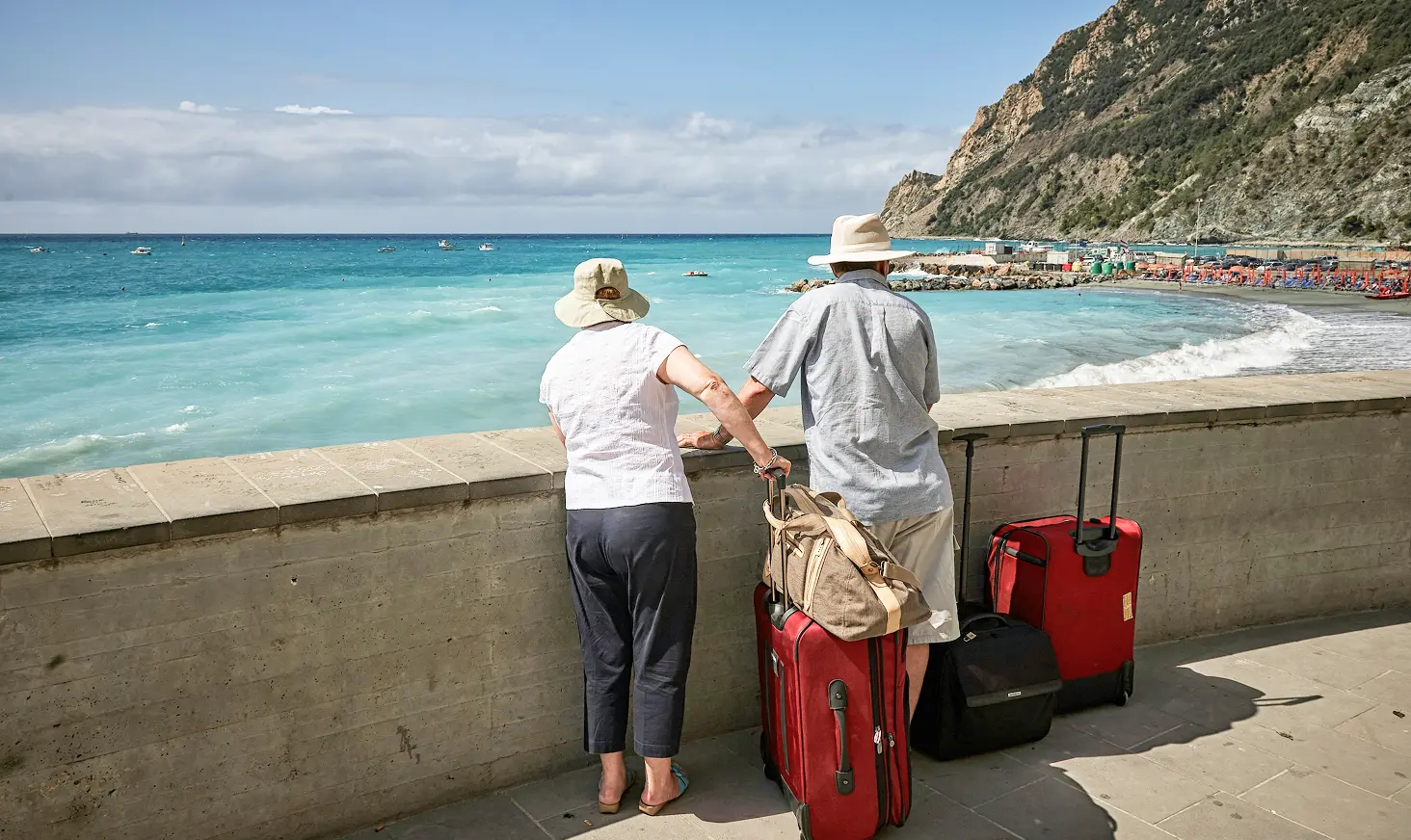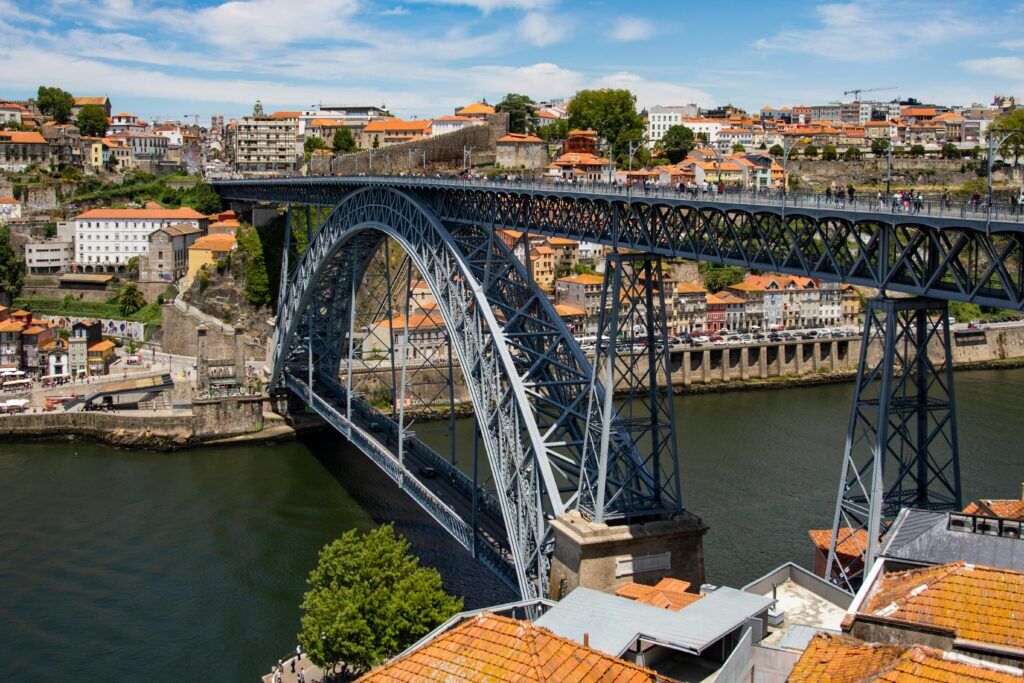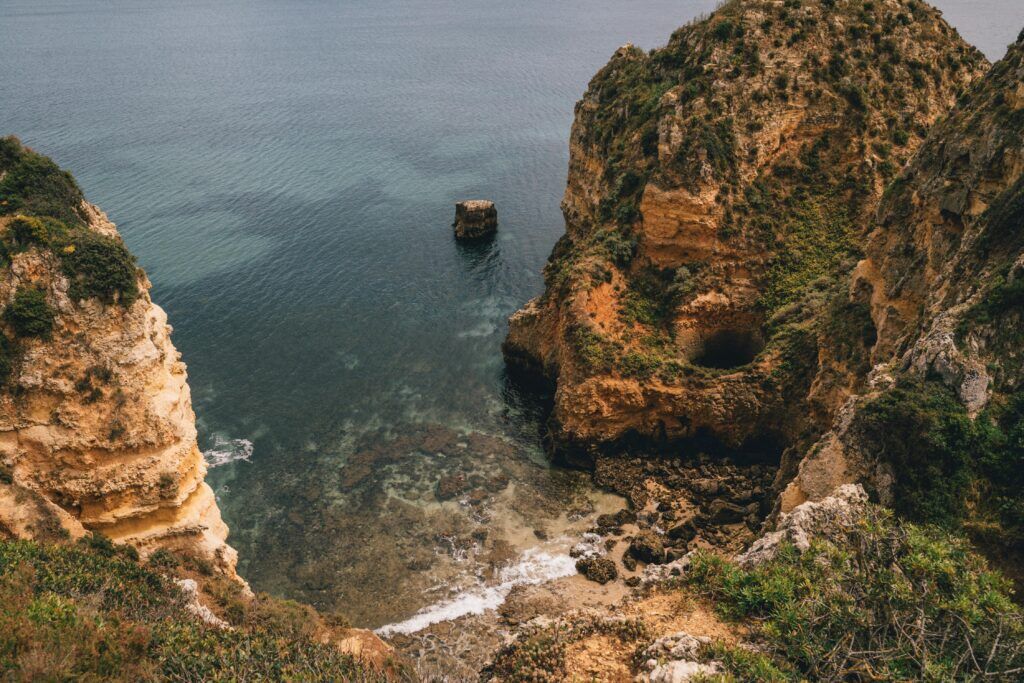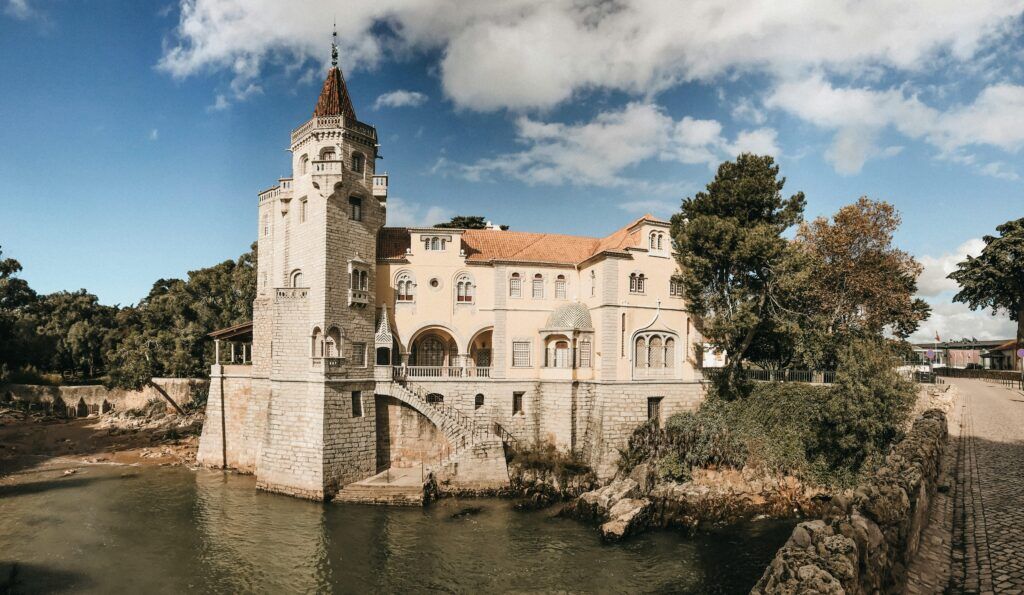Is Portugal a Good Place to Retire? Pros and Cons Explained

Why is Portugal dominating retirement bucket lists? Spoiler: It’s not just the pastéis de nata (though we see you, dessert stans). The real deal lies in practicalities. Particularly a healthcare system ranked among Europe’s best, residency programs made for retirees, and costs of living that stay low even as demand grows. With its borderline unfair combo of Mediterranean vibes, shockingly low costs, and flexible visa programs, Portugal has become one of the top options for retirement.
Besides, programs like the D7 Visa and the Golden Visa offer clear pathways for EU and non-EU nationals. However, no destination is perfect. Apart from the goodness, some downsides deserve equal mention, which begs the question, “Is Portugal a good place to retire?” To answer that, we’ll uncover everything you need to know about it. Let’s explore what’s hype, what’s real, and where Portugal truly shines.
Is Portugal a Good Place to Retire?
Retirement is a time to slow down, explore new opportunities, and enjoy life on your terms. If you’re considering Portugal as your retirement destination, you’re on the right track. But is it the right fit for you? Let’s take a closer look at some key factors to consider.
1. Lifestyle Fit
Humans are always racing against the clock, but not really in Portugal. People here find peace in a slow-moving life. They like to soak in the sunrise before going to work. But since we’re talking about retirees specifically, you’ll find the much-needed respite in the slow-paced charm that the country flaunts.
2. Cultural Integration
While the people are quite friendly, cultural integration is an issue. For the most part, you’ll struggle with communication barriers. However, there are still some localities where English is pretty common (the Algarve and Lisbon, to name two).
However, learning a bit of Portuguese is going to take you a long way. Basic phrases like “Hello”, or “Where is the train station” will help you get started on the right foot with the locals.
3. Financial Planning
Portugal is easily one of the most affordable countries to live in Europe. If you’re from a Western country, you’d love the reasonable housing, healthcare, and dining out options. That said, you still need to pay attention to financial planning. Some financial considerations include visa requirements, healthcare costs, and long-term economic sustainability to make sure you live a stress-free retirement.
Pros of Retiring in Portugal
Portugal’s retirement appeal is a calculated blend of practicality and perks, which is why people from all over the world are flocking to the country. While there are many pros of retiring in Portugal, here are just a handful of areas where it shines:
1. Affordable Cost of Living
The cost of living is the USP of Portugal. Everything from housing to healthcare facilities and food is quite affordable when compared to other Western European countries. Portugal’s smaller cities offer one-bedroom apartments from €500/month, while a three-course lunch with wine costs around €12. Public transport? A monthly Lisbon metro pass costs less than a single London-to-Heathrow Uber ride.
You’ll be surprised when you compare the prices of buses, trains, and trams in Portugal with those in the US or UK.
2. High-Quality Healthcare System
Ranked pretty high globally, Portugal has a public healthcare system (Serviço Nacional de Saúde – SNS), which provides universal coverage, and a private healthcare system offering faster services and specialized care.
3. Safe and Peaceful Environment
After working your whole life, all you crave is safety and peace. The good news is that Portugal has consistently been ranked in the Global Peace Index’s top 10 since 2014. This means walking alone at midnight isn’t a dare. Low violent crime, zero political chaos, more peace.
4. Beautiful Beaches, Cities, and Scenery
There’s nothing quite like spending your golden years by the beach. The scenes are so cool that you won’t be able to resist taking pictures every other second and sharing them with your friends and family back home. And who doesn’t love an exquisite cityscape? Beaches, cities, and sceneries are all packed into one location.
5. Friendly Expat Communities
Many retirees spotted Portugal as the perfect place to hang up their boots and call it their home, which means you’re not alone. Algarve, Cascais, and Porto are some of the popular destinations with most retirees. Expats in these areas regularly host meetups, cultural events, and social clubs, making it super easy to plug in, connect, and build lasting connections.
6. Tax Benefits for Foreign Retirees
Portugal’s Non-Habitual Resident (NHR) regime, which provided tax benefits for retirees, ended in 2024. This means now there’s a new program called the Incentivized Fiscal Incentive for Scientific Research and Innovation (IFICI). While it doesn’t bring with it the broad tax benefits of the NHR, it also doesn’t take away the fact that Portugal’s general tax rates remain lower than many Western European countries. Pension income is now taxed at standard Portuguese rates, which are still relatively low.
And the good thing is, Portugal maintains tax treaties with various countries to prevent double taxation. While retirees lose specific perks, the country’s overall tax scene remains pretty competitive.
7. Easy Travel Across Europe
If you’re a sucker for traveling, you’d love the amazing connectivity of Portugal with the rest of Europe. The Schengen visa allows you to visit about 26 countries in Europe, including some popular names like Rome, Paris, and Madrid. London is also just a stone’s throw away. A European adventure is always on the charts if you’re living in Portugal.
8. Access to Residency Visas Like the D7 and Golden Visa
Portugal makes it easy to get residency through amazing visa programs. For one, you have the D7 visa, also known as the passive income visa. If you have a stable income through a pension or an investment, you can get a Visa in Portugal, provided your income is a minimum of €760 per month.
Another great visa option is the Golden Visa, which allows you to get residency in the country if you make a property or other qualifying investment of about €500,000. It’s an easy pathway to gaining Portuguese citizenship after 5 years.
Cons of Retiring in Portugal
Yes, Portugal is great. But does it come without challenges? Nope. No place does. However, if you know these challenges beforehand, you can come up with an action plan to deal with them. Here are some cons you must be aware of:
1. There Can Be a Language Barrier
While English is widely spoken in the country, Portuguese remains the national language in the not-so-tourist areas. If you’re planning to live in the rural areas, having some Portuguese phrases up your sleeves will take you a long way.
Some phrases you could learn include:
- Olá (Hello)
- Obrigado/a (Thank you)
- Como vai? (How are you),
- Posso comer um pouco de pão (can I have some bread).
You can also enroll in a Portuguese class to get the basic hang of the language and make your day-to-day life relatively easy.
2. Slow Government Bureaucracy
In terms of bureaucracy, Portugal is not as good as Western countries. You’d find getting your driver’s permit challenging due to long wait times and requiring multiple visits to the office. The same applies to getting your residency visa or healthcare registration. For someone coming from the Western world, you’d find this annoying, but it grows on you. It’s still an important consideration, though.
3. Rising Housing Costs in Popular Areas
Due to many expats, digital nomads, and investors moving to popular areas like Lisbon, Porto, and the Algarve, the rates of houses have significantly shot up. In Lisbon and Porto, the rates have skyrocketed, making them really expensive places to stay. If you’re looking for a more affordable option, consider moving to smaller localities like Alentejo, Aveiro, Montijo, or Figueira da Foz.
4. Cold and Damp Winters (Especially in the North)
While Portugal is known for its sunny weather, the winters, particularly in the North, can be extremely chilly and damp. What makes this worse is that most of Portugal doesn’t have a central heating system like in the US or the UK. Instead, there are space heaters and fireplaces.
Humidity is another concern, which makes the older homes really damp. While southern Portugal (Algarve) enjoys milder winters, areas like Porto and Braga can experience rainy, chilly months that some retirees may find uncomfortable. If you don’t like cold, consider moving to a place with heating options to keep you warm on cold nights.
5. Higher Energy Costs Compared to the US
One thing you need to be aware of before considering Portugal as your next home is the high energy bills. The lack of efficient heating options can lead to a high electricity bill. In fact, Portugal is infamous in Europe for their high electricity prices. Gasoline prices are also significantly higher than in the US, making driving more expensive. Some retirees opt for solar panels or alternative energy solutions to reduce costs. Being mindful of energy consumption and choosing a home with good energy efficiency can help manage expenses.
Cost of Living Breakdown for Retirees in Portugal
Portugal is known for its affordable living, but you must be aware of the costs to make smart decisions. For example, knowing the rents in the most popular districts will help you choose the most cost-effective location to spend your lifetime once you retire. Here’s a detailed breakdown of the cost of living for retirees in Portugal:
1. Housing and Rent Prices
Just like any other place, pousing and rent prices in Portugal depend on which locality you’re living in. For example, in Lisbon & Porto, renting a one-bedroom apartment costs you anywhere between €900-€1,500 per month. If you’re thinking of buying a property, it could cost you anywhere between €4,000-€7,000 per square meter.
If this is way over budget, there are also some affordable options to consider in smaller cities. In Braga, Coimbra, or Évora, you only have to pay about €500-€800 per month with the property prices relatively lower as well. Rent in retirement-friendly regions like Faro, Lagos, or Tavira falls between €700-€1,200 per month, depending on proximity to the beach. The most affordable option is to live in the rural areas, where you’d only have to pay €400-€600 per month. Portugal has something both on the lower and the higher end, so ultimately, it all boils down to your budget.
2. Groceries, Dining, and Daily Expenses
You’d love to go Grocery shopping in Portugal, as the prices of groceries are considerably lower, at least when compared to Western countries. Here are some average prices of groceries, diving, and transportation:
3. Healthcare and Insurance Costs
Portugal has a public healthcare system called the SNS – Serviço Nacional de Saúde. All EU citizens can access it. While non-EU retirees can also access public healthcare, they usually prefer private services due to shorter wait times and many English-speaking doctors. Private insurance costs €40-€150+ per month, depending on age and coverage. More on this below.
Healthcare in Portugal: What You Should Know
Portugal’s healthcare system is a key reason it tops retirement lists. Here’s a breakdown of it, keeping affordability, speed, and English-speaking doctors in mind (no sugarcoating):
1. Public Healthcare (SNS)
Serviço Nacional de Saúde is Portugal’s taxpayer-funded healthcare system, open to all legal residents (including retirees with residency visas). Here’s the good and bad of it:
2. Private Healthcare
If you want fast access to healthcare services, private healthcare may be the way to go. Here are the benefits and challenges of it:
Private Health Insurance Costs
Many retirees prefer to take private health insurance to reduce their overall medical bills. Here’s how the pricing goes.
- Basic coverage: €40-€60 per month
- Comprehensive coverage: €80-€150 per month
- Premium insurance for older retirees: €150+ per month
How Health Coverage Works for Expats
The type of healthcare coverage available to you depends on various factors, including residency status, nationality, and whether you are from an EU or non-EU country. European Union (EU) and European Economic Area (EEA) citizens can use their European Health Insurance Card (EHIC) for short-term stays. Long-term residents from the EU/UK can register for SNS coverage by obtaining a Número de Utente (healthcare user number) at their local health center. UK citizens can access NHS-funded healthcare in Portugal under the S1 form if you’re a pensioner receiving a UK state pension.
Non-EU citizens need private health insurance before applying for a residency visa (such as the D7 Visa or Golden Visa). However, once you obtain legal residency, you can register for public healthcare (SNS).
Best Places to Retire in Portugal
The places to explore are abundant for retirees. Each place has its unique charm, lifestyle, and cost of living. Here are the top places you can choose as your second home:
1. Lisbon – A Blend of City Life and Culture

Being the capital city, Lisbon is a high-energy place where people love to retire. City life and culture converge here with the concentration of some of the biggest historical places. It has world-class museums with Fado music. You’d also fall for the city’s infrastructure, the well-connected transport system and shopping centres.
On the downside, it’s pricey. With the rent prices reaching an all-time high, you might struggle to land on the right accommodation for your needs. But if money is not the issue, then hands down, go ahead with this place.
2. Porto – Affordable, Scenic, and Laid-Back

If you’re looking for Lisbon perks but not-so-Lisbon prices, Porto might be the option for you. It has a relaxed and laid-back atmosphere with stunning scenery. It’s also home to the famous Port wine, so if you are a wine enthusiast, you’ll have a ball. On the downside, winters are cooler and wetter here.
3. The Algarve – Sun, Beaches, and Golf

The Algarve is known for its stunning coastline, and expansive expat community. Many retirees from the US, UK, and Germany have found a haven in this place. You’ll feel right at home. It gets over 300 days of sunshine per year with warm winters. You’ll also find some of the most exquisite beaches here. The USP of this place is its golf courses. Many retirees love to play golf, and if you relate to that, consider making the Algarve your retirement home.
4. Cascais – Upscale Living by the Coast

Cascais is an amazing alternative to Lisbon. If you fancy living by the beach, you won’t find a better spot. It’s incredibly well-maintained and has an excellent healthcare system. Moreover, it’s close to Lisbon, so you can also enjoy the perks of the capital city without breaking your bank.
5. The Silver Coast – A Quieter Alternative

Want to live by the coast without much of a crowd? The Silver Coast is your guy. This region includes towns like Nazaré, Óbidos, and Caldas da Rainha. It’s much more pocket-friendly than places like Lisbon or the Algarve. Since there are fewer tourists here, you’ll be able to relish the authentic local lifestyle. However, you also have to prepare for the smaller English-speaking population.
Visa and Residency Options for Retirees in Portugal
Retiring in Portugal is a dream of many, and now it can be your reality. The country offers two main visa programs to allow retirees to get residency – D7 and Golden Visa. Let’s learn more about them:
1. The D7 Visa
D7 visas are designed for retirees who have a stable passive income coming their way, either through pension, investments, or rental properties. It allows you to live in Portugal full-time with free movement in the Schengen region. You can also access the public healthcare system, SNS. After 5 years, you can apply for permanent residency and make it your retirement home.
2. Golden Visa Program
The Golden visa program is ideal for those who don’t want to commit to Portugal but still want to stay once in a while to take in the beauty of the place. To avail of this program, you must make a significant investment in the country, after which you can be granted a minimum of 7 days per year to stay in the place. It can lead to permanent residency and even citizenship, and you also get the option to include family members.
Ready to Retire in Portugal? Bitizenship Can Help

To be real, navigating Portugal’s visa process can feel a little daunting. Thankfully, Bitizenship exists, and this is exactly where we step in. Our team specializes exclusively in the Golden Visa program and opens access to the Unbound Fund, which is a private equity investment fund that makes it easier for global citizens like you to attain the Golden Visa.
Here’s how we simplify the entire process:
- Golden Visa Strategy: Personalized guidance based on your retirement goals and financial situation.
- Smooth Paperwork: From investment documentation to SEF scheduling, we handle the bureaucracy for you.
- On-the-Ground Support: Access to trusted lawyers, tax experts, and real estate partners who know the local landscape inside out.
With Bitizenship, you’re unlocking a stress-free roadmap to Portuguese residency, backed by a high approval rate and on-the-ground expertise. Get in touch today to invest in Portugal Golden Visa.
Closing Thoughts
Portugal’s blend of affordability, sun-drenched coasts, and retiree-friendly visas makes it a top contender for your golden years, but it’s not a one-size-fits-all paradise. Each city comes with trade-offs: rising rents, bureaucratic quirks, or winters that demand more than a sweater.
It’s important to align your priorities (budget, language tolerance, healthcare needs) with the right locality. Build connections with expat hubs, learn a handful of local phrases, and pack patience and maybe a space heater.
FAQs
What are the cons of retiring in Portugal?
Every place comes with its challenges. When in Portugal, you’d likely struggle with the language barrier, slow bureaucracy, rising housing rates, and high energy costs. Other than that, it’s an incredible place to retire in.
How much money do you need to retire in Portugal?
Portugal has affordable housing, healthcare facilities, and grocery prices. This means you only need an average of €1,500 to €3,000 per month to thrive in Portugal as a retiree.
Which part of Portugal is best for retirement?
The best place in Portugal to retire depends upon your needs and requirements. If you’re looking for a rich culture, historical significance, and modern amenities, Lisbon would be ideal. On the other hand, if you’re looking for affordable living, Porto is a great alternative. For the beaches and sun, consider The Algarve.
Is it better to retire in Spain or Portugal?
Both Portugal and Spain are excellent places to retire, but there are some key differences between the two. For one, Spain is slightly more expensive than Portugal, but the healthcare system is better and more efficient in the former. And while Spanish is widely spoken in Spain, English is quite prevalent in the country, more than in Portugal. However, Spain imposes higher taxes on foreign income. The choice boils down to your requirements.


